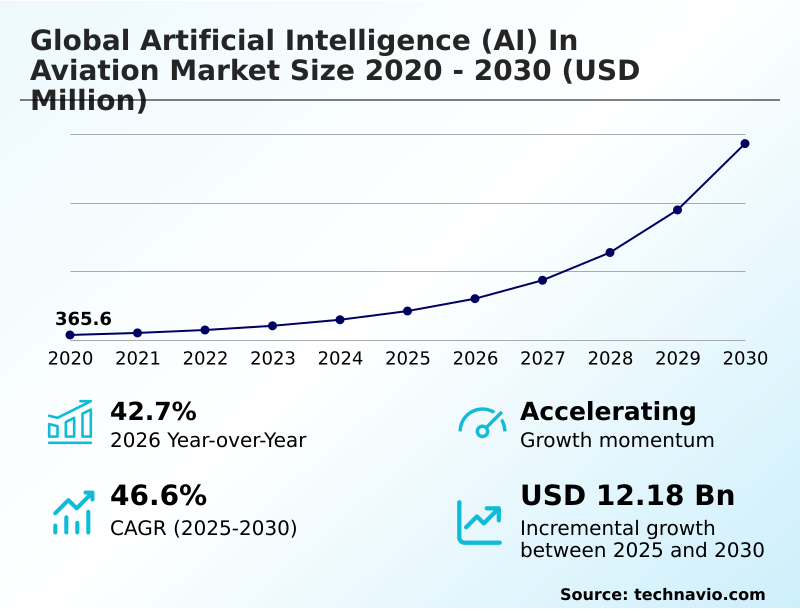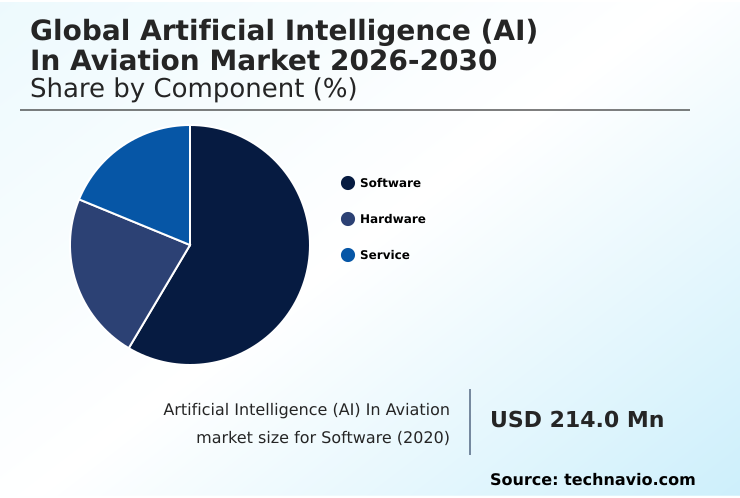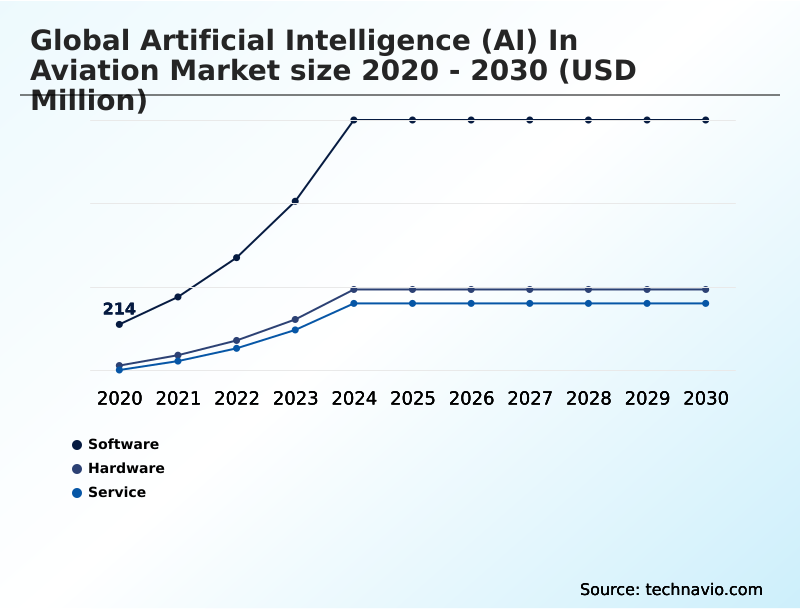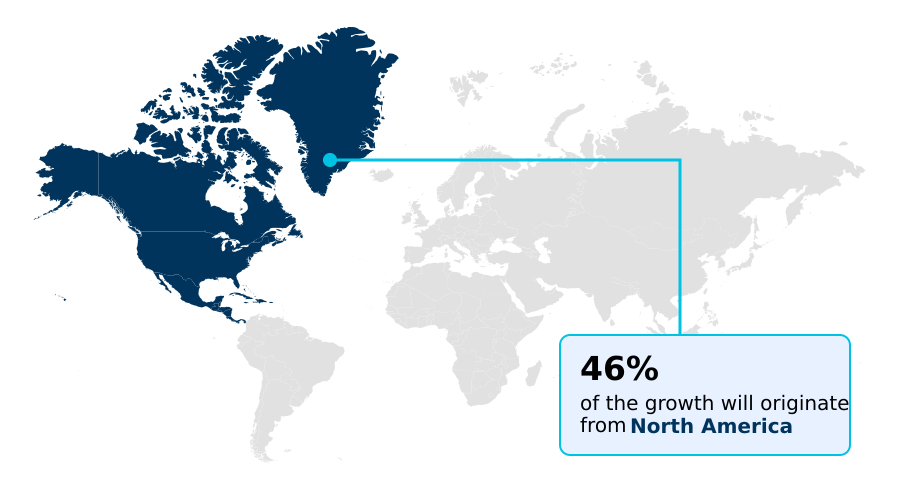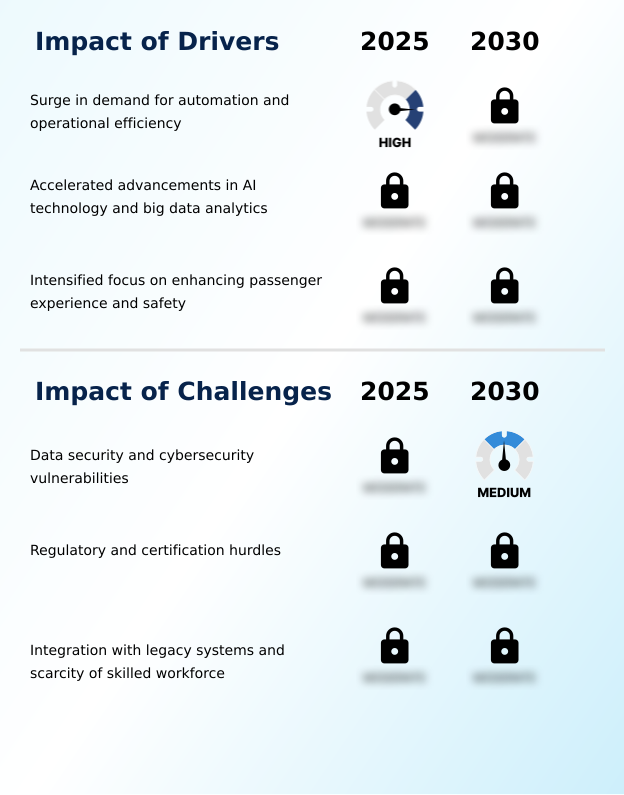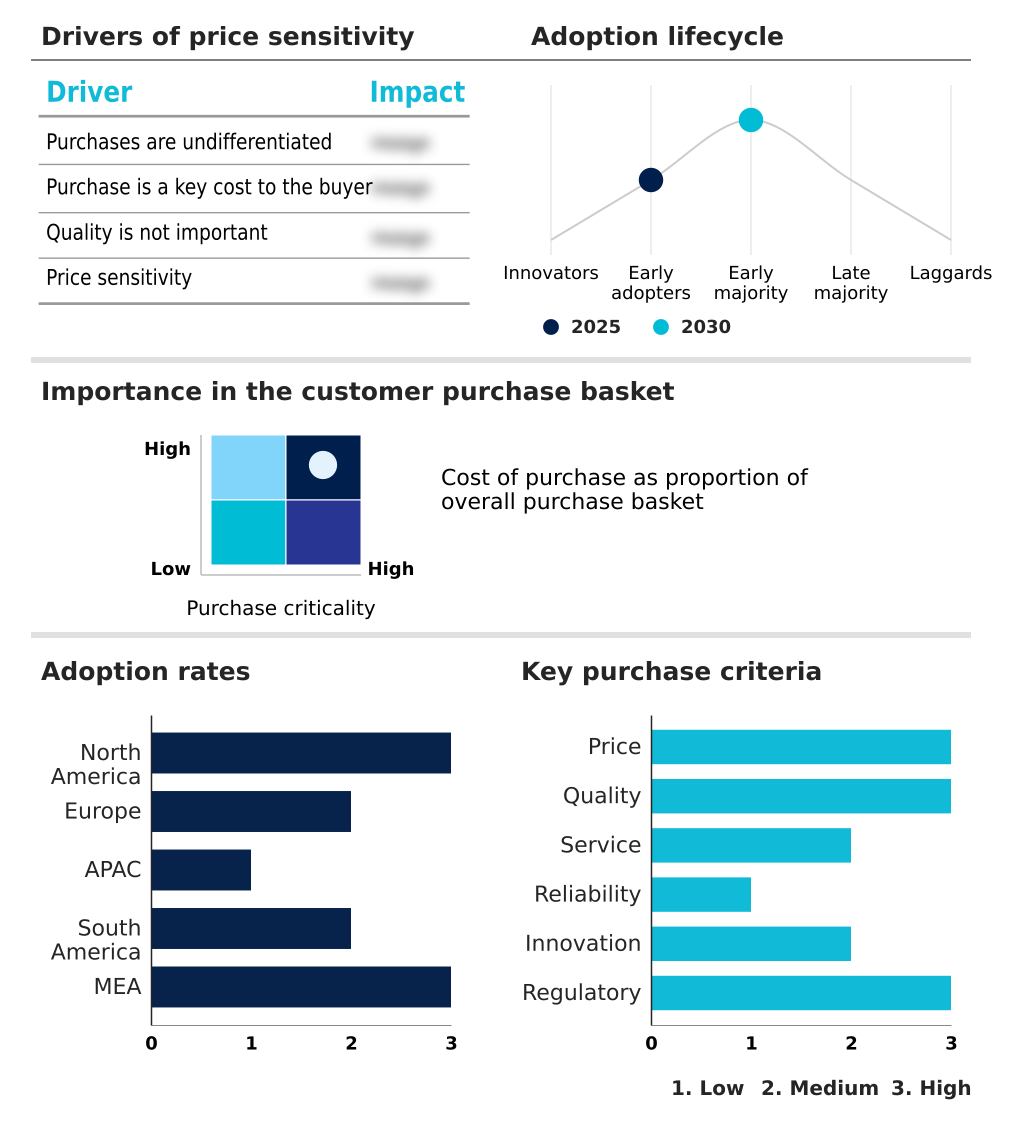Artificial Intelligence (AI) In Aviation Market Size 2026-2030
The artificial intelligence (ai) in aviation market size is valued to increase by USD 12.18 billion, at a CAGR of 46.6% from 2025 to 2030. Surge in demand for automation and operational efficiency will drive the artificial intelligence (ai) in aviation market.
Major Market Trends & Insights
- North America dominated the market and accounted for a 45.7% growth during the forecast period.
- By Component - Software segment was valued at USD 865.6 million in 2024
- By Application - Airline operations segment accounted for the largest market revenue share in 2024
Market Size & Forecast
- Market Opportunities: USD 13.92 billion
- Market Future Opportunities: USD 12.18 billion
- CAGR from 2025 to 2030 : 46.6%
Market Summary
What will be the Size of the Artificial Intelligence (AI) In Aviation Market during the forecast period?
Get Key Insights on Market Forecast (PDF) Request Free Sample
How is the Artificial Intelligence (AI) In Aviation Market Segmented?
The artificial intelligence (ai) in aviation industry research report provides comprehensive data (region-wise segment analysis), with forecasts and estimates in "USD million" for the period 2026-2030, as well as historical data from 2020-2024 for the following segments.
- Component
- Software
- Hardware
- Service
- Application
- Airline operations
- Manufacturing and MRO activities
- Technology
- Machine learning
- NLP
- Computer vision
- Others
- Geography
- North America
- US
- Canada
- Mexico
- Europe
- Germany
- UK
- France
- APAC
- China
- Japan
- India
- South America
- Brazil
- Argentina
- Colombia
- Middle East and Africa
- Saudi Arabia
- UAE
- Israel
- Rest of World (ROW)
- North America
By Component Insights
The software segment is estimated to witness significant growth during the forecast period.
The Software segment was valued at USD 865.6 million in 2024 and showed a gradual increase during the forecast period.
Regional Analysis
North America is estimated to contribute 45.7% to the growth of the global market during the forecast period.Technavio’s analysts have elaborately explained the regional trends and drivers that shape the market during the forecast period.
See How Artificial Intelligence (AI) In Aviation Market Demand is Rising in North America Request Free Sample
Market Dynamics
Our researchers analyzed the data with 2025 as the base year, along with the key drivers, trends, and challenges. A holistic analysis of drivers will help companies refine their marketing strategies to gain a competitive advantage.
What are the key market drivers leading to the rise in the adoption of Artificial Intelligence (AI) In Aviation Industry?
What are the market trends shaping the Artificial Intelligence (AI) In Aviation Industry?
What challenges does the Artificial Intelligence (AI) In Aviation Industry face during its growth?
Exclusive Technavio Analysis on Customer Landscape
The artificial intelligence (ai) in aviation market forecasting report includes the adoption lifecycle of the market, covering from the innovator’s stage to the laggard’s stage. It focuses on adoption rates in different regions based on penetration. Furthermore, the artificial intelligence (ai) in aviation market report also includes key purchase criteria and drivers of price sensitivity to help companies evaluate and develop their market growth analysis strategies.
Customer Landscape of Artificial Intelligence (AI) In Aviation Industry
Competitive Landscape
Companies are implementing various strategies, such as strategic alliances, artificial intelligence (ai) in aviation market forecast, partnerships, mergers and acquisitions, geographical expansion, and product/service launches, to enhance their presence in the industry.
Airbus SE -
The industry research and growth report includes detailed analyses of the competitive landscape of the market and information about key companies, including:
- Airbus SE
- Amadeus IT Group SA
- Astronics Corp.
- FLYR Inc.
- Garmin Ltd.
- General Electric Co.
- Harman International Industries Inc.
- Infosys Ltd.
- Intel Corp.
- IBM Corp.
- Microsoft Corp.
- MINDTITAN OU
- Mphasis Ltd.
- Neurala Inc.
- NVIDIA Corp.
- Sabre Corp.
- Searidge Technologies
- TAV Technologies
- Thales Group
- The Boeing Co.
Qualitative and quantitative analysis of companies has been conducted to help clients understand the wider business environment as well as the strengths and weaknesses of key industry players. Data is qualitatively analyzed to categorize companies as pure play, category-focused, industry-focused, and diversified; it is quantitatively analyzed to categorize companies as dominant, leading, strong, tentative, and weak.
Recent Development and News in Artificial intelligence (ai) in aviation market
Dive into Technavio’s robust research methodology, blending expert interviews, extensive data synthesis, and validated models for unparalleled Artificial Intelligence (AI) In Aviation Market insights. See full methodology.
| Market Scope | |
|---|---|
| Page number | 297 |
| Base year | 2025 |
| Historic period | 2020-2024 |
| Forecast period | 2026-2030 |
| Growth momentum & CAGR | Accelerate at a CAGR of 46.6% |
| Market growth 2026-2030 | USD 12177.0 million |
| Market structure | Fragmented |
| YoY growth 2025-2026(%) | 42.7% |
| Key countries | US, Canada, Mexico, Germany, UK, France, Italy, Spain, The Netherlands, China, Japan, India, South Korea, Australia, Indonesia, Brazil, Argentina, Colombia, Saudi Arabia, UAE, Israel, South Africa and Turkey |
| Competitive landscape | Leading Companies, Market Positioning of Companies, Competitive Strategies, and Industry Risks |
Research Analyst Overview
What are the Key Data Covered in this Artificial Intelligence (AI) In Aviation Market Research and Growth Report?
-
What is the expected growth of the Artificial Intelligence (AI) In Aviation Market between 2026 and 2030?
-
USD 12.18 billion, at a CAGR of 46.6%
-
-
What segmentation does the market report cover?
-
The report is segmented by Component (Software, Hardware, and Service), Application (Airline operations, and Manufacturing and MRO activities), Technology (Machine learning, NLP, Computer vision, and Others) and Geography (North America, Europe, APAC, South America, Middle East and Africa)
-
-
Which regions are analyzed in the report?
-
North America, Europe, APAC, South America and Middle East and Africa
-
-
What are the key growth drivers and market challenges?
-
Surge in demand for automation and operational efficiency, Data security and cybersecurity vulnerabilities
-
-
Who are the major players in the Artificial Intelligence (AI) In Aviation Market?
-
Airbus SE, Amadeus IT Group SA, Astronics Corp., FLYR Inc., Garmin Ltd., General Electric Co., Harman International Industries Inc., Infosys Ltd., Intel Corp., IBM Corp., Microsoft Corp., MINDTITAN OU, Mphasis Ltd., Neurala Inc., NVIDIA Corp., Sabre Corp., Searidge Technologies, TAV Technologies, Thales Group and The Boeing Co.
-
Market Research Insights
We can help! Our analysts can customize this artificial intelligence (ai) in aviation market research report to meet your requirements.

